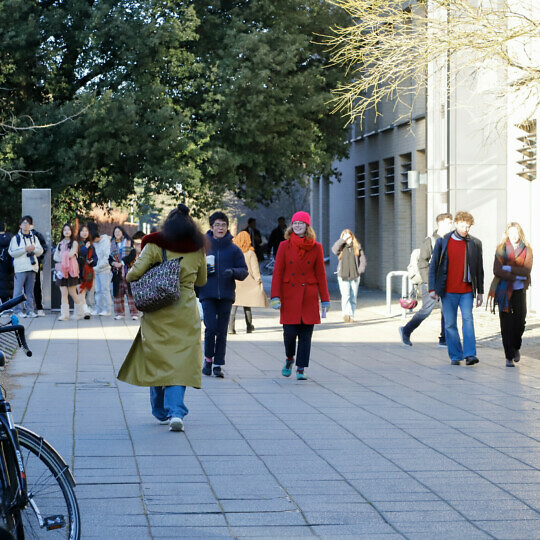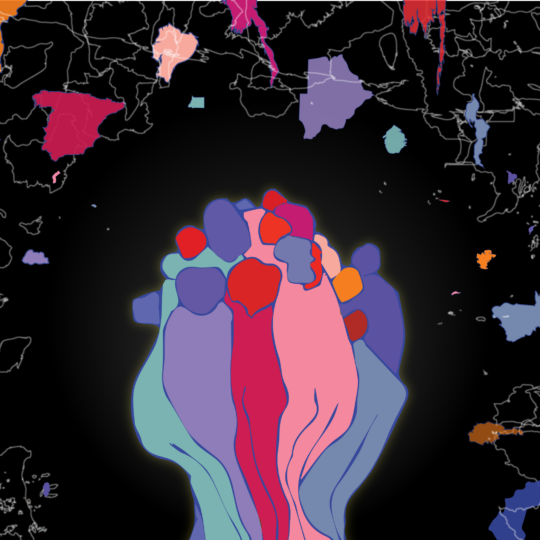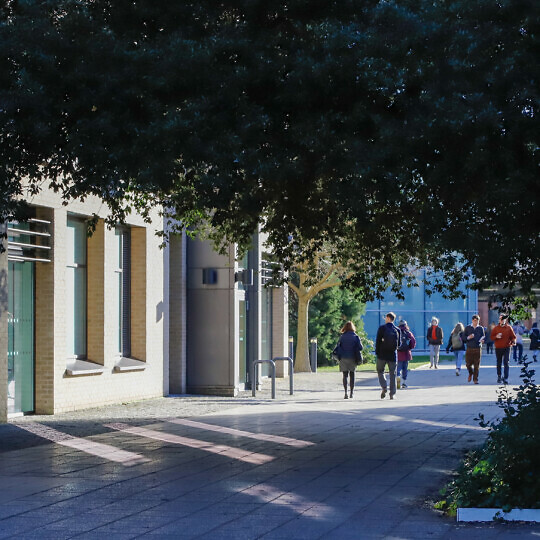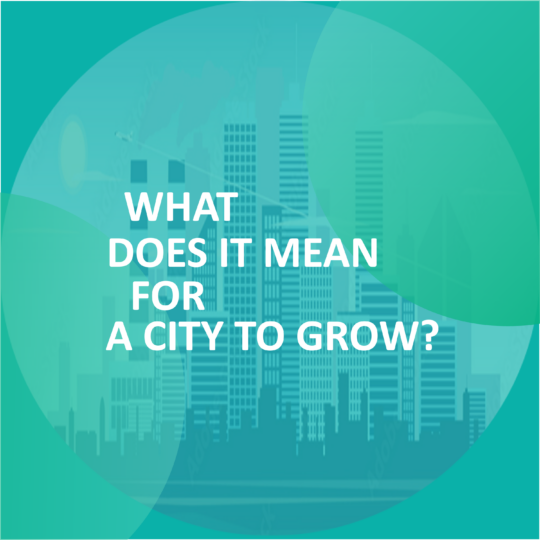| 13 May 2021 - 14 May 2021 | All day | ONLINE | |
- Description
- Programme
- Abstracts
Description
Sign up to the CRASSH Newsletter for more information and updates on this conference.
Conference Organisers
Jules Allen
Yasmeen Arif
Asiya Islam
Clare Walsh
Siby Warrington
Summary
“I’m the primary caregiver for our children.”
“I care about you.”
“I wish you would take better care of your health.”
“We need to care about our environment.”
“Take care!”
Can we imagine, or indeed survive in, a world without care? From public health to domestic arrangements to climate change, the language of care permeates our everyday lives. It is an emotion – one can care deeply about someone or something; it is labour – women disproportionately take on caring and emotional burden; it is a form of relation – children and other dependents are cared for; it may also be a form of protest – to draw upon Audre Lorde, self-care can be political warfare. There are also repeated injunctions about the global ‘crisis of care’. This crisis may emerge from, as feminist theorisation has persistently highlighted, the relegation of care and social reproduction to secondary status in relation to income-generation and financialisation. Where social arrangements develop premised on capital interests, rather than the fundamental necessity of care, there may be lack of availability of care arrangements, time crunch between ‘work’ and ‘life’, climate change triggered by wasteful consumption of limited resources, and so on, indicating a fast-approaching breaking point for individuals and society. Indeed, the coronavirus crisis has prompted a discussion about the practices of care that otherwise remain invisible.
While there is scholarship on care in different disciplines, there is relatively little work to develop conceptual links between social, economic, and ecological care. There is also scarce comparative understanding of varied registers of care around the globe – how is care valued and practiced differently by different people? This two-day interdisciplinary conference will treat ‘care’ as an object/subject of investigation with emphasis on encompassing global formulations of care – hence, ‘The Social Life of Care’. Using the history, contemporary representations, and circulation of discourse of care in diverse contexts as an entry point, the discussion will attempt to extricate the ‘fundamentals of care’ – is care fundamentally non-transactional? Is care fundamentally emotional? Is care fundamentally gendered? From this working definition of care, the conference will engage with varied methodological and analytical approaches to care through the work of scholars from public health, sociology, geography, anthropology, and economics. These discussions will open up space for reflection on the future of care – both a taking account of the implications of a care-less society and a utopian envisioning of a society built upon the foundations of care.
Contributing to the emerging scholarship on care in various disciplines, this international conference on ‘The Social Life of Care’ will draw attention to the varied registers of care around the globe – how is care conceptualised, practiced, and represented in different geographical, social, economic, and political contexts? Using the history, contemporary representations, and circulation of discourse of care in diverse contexts as an entry point, the discussion will revisit the ‘fundamentals of care’ – is care fundamentally non-transactional? Is care fundamentally emotional? Is care fundamentally gendered? The conference will engage with varied methodological and analytical approaches to care through the work of scholars in disciplines, such as, public health, sociology, geography, anthropology, and economics. These discussions will open up space for reflection on the future of care – both a taking account of the implications of a care-less society and an envisioning of a society built upon the foundations of care.
![]() #CareAtCam
#CareAtCam
Registration links for this conference can be found on the right of this page.
Supported by:

 Newnham College Cambridge
Newnham College Cambridge
If you have any specific accessibility needs for this event please get in touch. We will do our best to accommodate any requests.
Conference assistance: events@crassh.cam.ac.uk
Programme
| 10.45 - 11.00 (BST) | Introduction |
Early Career Workshop Led By: The Care Collective (Andreas Chatzidakis, Jamie Hakim, Jo Littler, Catherine Rottenberg) Closed workshop for conference presenters only |
|
| 11.00 - 12.00 (BST) | Panel 1 Chair: Jo Littler (City University London) ‘People not Tasks’: How Carers Challenge the Commodification of Care Care, Emotions and Globalization in Meshwork Theory Care and Crisis in the American Revolutionary War |
| 12.00 -13.00 (BST) | Panel 2 Chair: Jamie Hakim (University of East Anglia) Negotiating Daily Practices of Care Labour in Paid Home-Based Elderly Care in Turkey Can Parveen Come Out to Play? Middle-Class Women’s Work in Pakistan Self (care) in the Times of the Pandemic |
| 13.00 - 14.00 (BST) | Break |
| 14.00 - 15.00 (BST) | Panel 3 Chair: Andreas Chatzidakis (Royal Holloway) and Catherine Rottenberg (Nottingham) Radical Care: The Igorot Domestic Helper Activists in Hong Kong Providers as Protestors: Expressions of Dissent by Care-workers An Act of Care “over here” and Commodified Labour “over there”: A Transnational View of Surrogacy in the UK Conceptualizing Practices of Care: The Case of Female Domestic Workers in Ethiopia and Tanzania |
| 15.00 - 15.30 (BST) | Break |
| 15.30 - 17.00 (BST) | Roundtable on Covid19 and Care, Chaired by Lynne Segal Mothering the Crises: An Exploration of the Experiences of Mothers Working from Home in the First National U.K. ‘Lockdown’ During the Covid-19 Pandemic The Crisis of Care in the COVID-19 Global Policy Response The Complexities of Care (Mongering): Virtually Organized Community Care in Response to COVID-19 |
Friday 14 May |
|
| 9.45 - 10.00 (BST) | Welcome and Introduction |
| 10.00 - 11.30 (BST) | A1: Care and Reproduction Moderator: Clare Walsh Who cares? Exploring the various facets of the care burden for rural women in Atakora, Benin Contests of Care: A Feminist Analysis of Surrogacy in India Understanding Female Paid and Unpaid Work in India Childcare Provision as an Intergenerational Project: The Gendered and Generational Division of Childcare Labour in Urban Chinese Families |
| 10.00 - 11.30 (BST) | A2: Care and the Self Moderator: Asiya Islam The Ethics of Self-Care. Risk, Responsibility and Reproductive Agency in Chile Queering Care: Disrupting the Gendered Assumptions of Care’s Implicit Power Dynamics Self Care as a Public Act of Mothering : Auto Ethnography of an Online Parenting Support Group |
| 11.30 -12.00 (BST) | Break |
| 12.00 - 13.30 (BST) | B1: Languages of Care Moderator: Asiya Islam Care and Control: Migrant Women under Protection in Metropolitan India Memes and Mother Goddesses: The Social Life of Care on Indian New Media Platforms |
| 12.00 - 13.30 (BST) | B2: Care in the Liminal Moderator: Clare Walsh Repair and Reuse: Re-Configuring Emotional Relationships with Household Objects ‘Care Corridors’: Dual Bordering Process of Care Migration in Central Europe Children in the Liminal: The Social Life of Adoptive Care in Poland |
| 13.30 - 14.00 (BST) | Break |
| 14.00 - 15.30 (BST) | C1: Governing Care Moderator: Yasmeen Arif Visions of a Caring Democracy: The Place of Representation Feeding Babies, Making the State: Breastmilk as Political Substance in Ethiopia (De)Valuing Care: Shifting Practices of Human Resource Management in Zambia’s Mining Sector Building Care Narratives in Latin America |
| 14.00 - 15.30 (BST) | C2: Care, Kinship, and the State Moderator: Asiya Islam Violence of Care: Afghan Foreign Fighters in Iran “I don’t want to be a Hero”: The Sound of an Unspeakable Voice |
| 15.30 - 16.00 (BST) | Break |
| 16.00 - 17.30 (BST) | Opening Conversation: Envisioning Care Chair: Alpa Shah |
Saturday 15 May |
|
| 10.00 - 11.30 (BST) | D1: Care and Work Moderator: Yasmeen Arif Beauty and its Discontent: Gender, Class and Aesthetic Labour in Kolkata Economic and Political Regimes of Caring and not Caring in London and Madrid Jellyfish Antics: Trans Stylists and Beauty Salons in the Colombian Insular Caribbean Pakikipagkapwa: The Filipino Value of Care as Driving Force Throughout the Filipino Migrant Journey |
| 10.00 - 11.30 (BST) | D2: Care and compensation Moderator: Asiya Islam Valuing Care in Carers’ Own Terms: A Transnational Inquiry Remittances as Social Practices of Care: What Happens in Times of Crisis? Social Policies, Care and Emotions Can the Architecture of a Monetary System Evoke Care? |
| 11.30 - 12.00 (BST) | Break |
| 12.00 - 13.30 (BST) | E1: Care and Activism Moderator: Siby Warrington The Affective Politics of Care in Trans Crowdfunding Bisexual Activism: A Love Story To Feed: Care Practices Between Love and Hope Practicing Critical Compassion Under Constraint: Egypt’s Care with Love |
| 12.00 - 13.30 (BST) | E2: Care and Institutions Moderator: Asiya Islam Public Library Workers, Unconditional Hospitality and Shared Leadership Horizons of Care: Following the Temporal Lines of Care in Activist Practice Feminist Care Work for and Against the Neoliberal University: A Social Reproduction Perspective |
| 13.30 - 14.00 (BST) | Break |
| 14.00 - 15.30 (BST) | F1: Doing Care Moderator: Siby Warrington Care Municipalism: Exploring the Potentials for Addressing the Care Crisis New Horizons for the Democratization of Care in Barcelona Please, don’t call it care!’: Ethnographic and Theoretical Insights at the Intersection of Disability Studies and Feminist Thinking |
| 14.00 - 15.30 (BST) | F2: Materialities of Care Moderator: Asiya Islam Trust Issues: A Micro-History of Community-Based Institutions of Care in Colonial Bombay More-Than-Human Care: The Biopolitics of Plant Disease in Spanish Almonds The Transformations of Care in Light of the Pandemic in Chile: Results of CUIDAR Study about Times, Forms, and Spaces of Care Within the Households |
| 16.00 - 17.30 (BST) | Closing Conversation: Rethinking Care Around the Globe Revitalising Sociological Perspectives on Care: An Ecological Approach The Circuits of Care: ‘Profession’, ‘Obligation’, ‘Help’ Expanding Our Emotional Vocabulary: Connective Labor and the Politics of Feelings in Care-Work Cartographies of Care: New horizons for healthcare built on local social infrastructures |
| 17.30 - 17.45 (BST) | Concluding Remarks Bev Skeggs (Lancaster University) |
Abstracts
Early Career Workshop
PANEL 1
Care, Emotions and Globalization in Meshwork Theory
Giacomo Lampredi (University of Florence-University of Turin)
My presentation is based on a joint approach of ethics of care, sociology of emotions and mesh theory in order to study some care relationships that are emerging as global problems: the refugees crisis and the care of animals, threatened by the consequences of climate change. The meshwork theory, inspired by Tim Ingold’s ecological thinking, has the potential to redefine global problems as “intertwined stories”, in which emotional culture is embodied into care processes. During this presentation some results will be shown that come from a qualitative study conducted in Italy which had as research object the refugees crisis and the sensibilization to care for non-human animals. The research (still ongoing) is conducted through semi-structured interviews and analyzed through what we could call an abductive approach. These two forms of care and sensibility show how care must be described as a phenomenon of increasing global relevance.
‘People not tasks’: How Carers Challenge the Commodification of Care
Rosie Harrison (Lancaster University)
Commodification fundamentally redefines care from the embodied experience of receiving care, in favour of aspects that are quantifiable, standardisable, and task-based. Commodification thus redefines the care needs of a person in terms of what can be quantified, and subject to cost-effectiveness measures. Within the UK, austerity measures and cuts to Social Care budgets coupled with rising levels of need and an aging population, have redefined both eligibility and what constitutes paid care. However, such stringent definitions of care are challenged in practice by paid carers. This paper uses data from a five-month ethnographic study in a UK domiciliary care organisation, which provides care within client’s homes through short visits. Data consist of fieldnotes from observations and shadowing shifts, and interviews with both carers and their managers. Preliminary analysis shows that carers challenge such narrow definitions of care in their practices, choosing to focus on the personal and relational aspects of care. Exploring how carers negotiate the challenges and constraints of commodification highlights the complexities inherent in providing paid care, and as such contributes important insights for discussions on how care is conceptualised, practiced and represented.
Care and Crisis in the American Revolutionary War
Meg Roberts, University of Cambridge
While the turmoil and reverberations of the American Revolutionary War were never far from the concerns of any Philadelphian in the late 1770s, the attention of the city’s caregivers was regularly elsewhere. In the wake of the American loss at the nearby Battle of Brandywine in 1777, Quaker diarist Elizabeth Drinker’s daily entries described the ‘great weight on [her] Spirits’: not the imminent British occupation of Philadelphia, but the ongoing sickness of her son amid the ‘Sickly season’. Despite heightened injury and sickness during the war and the centrality of care work in the lives of most women and many men, caregiving has not been examined in any depth as an aspect of the Revolutionary experience. However, comments and reflections on care work are certainly present in the papers of those involved in the Revolution. With thousands of soldiers sick and wounded, in addition to civilians already suffering from a plethora of eighteenth-century illnesses and impairments, the Revolutionary War required the devotion of unprecedented time and energy to care work. Through examining the wartime letters and diaries of Philadelphian carers like Elizabeth Drinker, this paper will explore the emotional and social dynamics of caregiving in an eighteenth-century health crisis.
PANEL 2
Can Parveen Come out to Play? Middle-Class Women’s Work in Pakistan
Cecilie Mueenuddin (University of Oxford)
Many educated middle-class women in Lahore are determined to continue in their jobs after they get married. There is a carefully growing acceptance in Pakistan of women’s labour-market participation, and many families also feel the need for an extra income after years of neoliberalization. However, once these women get married and have children, they often quit their jobs. Based on 13 months of ethnographic fieldwork in Lahore, this paper argues that there is a fundamental crisis of care that makes these women quit their jobs, as working women are expected to shoulder the double burden of housework and childcare, alongside long hours in male-dominated work places, without adequate maternity leave or childcare provisions. Underlying these problems are also the prevalent gender norms and ideas about respectability in Pakistan, which create and justify the present division of labour, making women the family’s main caregivers. The paper ends with some reflections on how the arrival of Covid-19 in Pakistan will affect middle-class women, in particular, suggesting that although some may be pushed into the labour market because of financial problems in the family, most women will nevertheless be likely to be tied.
Self (care) in the times of the pandemic
Ashwin Tripathi, Indian Institute of Technology and Tannistha Samanta, FLAME University Pune
Utilizing thematic analysis, the paper discusses how the pandemic forged a renewed interest in self-care and self-efficacy among urban older Indians. This time-use diary-based study on 15 older adults in heterosexual unions is part of a larger research project that examines leisure patterns and everyday subjectivities. Our preliminary analysis show older adults reporting a heightened focus on the self (meditation, online activity/learning, and socializing), with an improved spousal relationship. Additionally, we observed gender differences in engaging in self-care and how it is deepening the patriarchal ideology of separate spheres in leisure practices. Men primarily engaged in outdoor activities while older women chose to engage in activities that are related to domesticity and household management. We contend that while immediately uplifting, the ethics of self-care embodies the neoliberal logic of the entrepreneurial subject that makes self-reliance a necessity to practice responsible citizenship in times of the pandemic. Overall, by shifting the logics of care to the self we depart from the more commonly held notion of older adults being recipients of care to the crafting of autonomous entrepreneurial subjects through the pandemic-led public health ideals of committed citizenship and civic virtue.
Negotiating Daily Practices of Care Labour in Paid Home-Based Elderly Care in Turkey
Gizem Irmak Sel (Bremen International Graduate School of Social Sciences)
Turkey, as a country traditionally centred on a family-based care model. Longstanding expectations and traditions of care have been challenged by the socio-demographic changes and the transformation in intergenerational relationships. Along with these developments, there has been an emerging trend towards the employment of migrant care worker (MCW) in elderly care. Based on 39 in-depth interviews with family-employers, care-receivers, and MCWs conducted, I will present how the actors negotiate the daily practices of care work and how they deal with arising incompatibilities. Care work, as performed by MCWs entails intimate and emotional work, where expected and desired behavioural rules are crucial. Heeding from this assertion, in this study, I claim that socio-cultural affinities and differences between family-employers and MCWs might become a significant matter in the management of the arrangement. I conclude with how socio-cultural similarities and differences are manifested and negotiated by the actors in setting the expectations and in the daily practices of care work in paid home-based elderly care in Turkey.
PANEL 3
An act of care “over here” and commodified labour “over there”: a transnational view of surrogacy in the UK
Meera Somji (LSE)
In 2020 the UK Supreme Court ruled that a transnational commercial surrogacy was “restorative” of a person’s fertility, despite being illegal. In the UK only ‘altruistic’ surrogacy arrangements are legal; in this context, surrogacy is conceptualised as an act of care, as a gift, as fundamentally non-transactional. If social reproduction theory makes thinkable the claim that surrogacy is a form of labour, how does the binary between ‘altruistic’ and ‘commercial’ surrogacy in UK law exert influence on today’s global surrogacy industry? By examining surrogacy laws in the UK with a transnational, post-colonial lens, I expand on the literature on surrogacy and reproduction which, to this point, has been dominated by ethnographic studies of surrogates in the Global South but neglects the demand for surrogates today and the brutal history of reproduction during colonialism. I argue that UK laws stimulate demand for surrogates elsewhere who are not subject to the same level of “protection from commodification” yet uphold the idea that surrogacy is not a form of work, making it easier to justify the poor working conditions and low financial share received by surrogates in poorer geographies.
Radical Care: The Igorot Domestic Worker-Activists of Hong Kong
Jose Kervin Cesar B. Calabias (Lingnan University – Hong Kong)
This paper is part of an on-going ethnographic study on the Igorot, the collective identity of the Indigenous peoples of the Cordillera in the island of Luzon in the Philippines, who are employed as domestic helpers in Hong Kong. Specifically, my paper focuses on the Igorot domestic helpers who consider themselves as Indigenous activists and are members of the Pinatud a Saleng ti Umili, an exclusive organization for Igorot migrant domestic helpers. Aside from asserting labor rights, these women and their organization campaign for ancestral land rights and asserting Indigenous self-determination among other struggles from their homeland. I tentatively argue that through Indigenous activism in diaspora, these women have reshaped Indigenous cultural roles and practices traditionally performed by Igorot men through the transnational, hybrid, and neoliberal conditions that affect domesticity and activism in Hong Kong. Further, the transfer and transformation of Indigenous activism and culture can be uniquely attributed to and are sustained by the intimate labor and affects of care that circulate between and among Igorot domestic helpers and the wider Hong Kong domestic helper community, which are necessarily radicalized in their activism but are also indigenized as they actively contend with the shifting conditions of indigeneity in their labor/movement and labor/movement in their indigeneity in a multi-ethnic/national community of residents and migrants in Hong Kong.
Providers as Protestors: Expressions of Dissent by Care-Workers
Aiman Haque (Self Employed Women’s Association)
The word “care”, at first instance, gives way to a very positive visualization in people’s minds owing to the gentle connotations attached to the word. However, if we delve further into the personal, social and economic realities of care, it can produce a picture that is much more complicated. This is particularly true for care providers. The work of care providers is often intertwined with the idea of sacrifice and duty which gives rise to expectations of tireless service with little regard for their personal needs. This gets exacerbated in times of crisis like the ongoing pandemic; when the state prefers to take care providers for granted too. The reaction to such callousness can only be that of dissent; as was recently exemplified by the protests of around 5000 nurses in India who had gone on strike to make their demands heard. This, alongwith other such expressions of defiance across the world, not only force us to face the flesh and blood humanity of care providers but also make us realise that care work is deeply political; the exploration of which can help change the conversation around care-work to one which is more cognizant of the rights of care providers.
PANEL 4
Conceptualizing Practices of Care: The Case of Female Domestic Workers in Ethiopia and Tanzania
Silvia Cirillo (University of Urbino Carlo Bo)
Drawing from my ethnographic research in Ethiopia and Tanzania, I show how the diversity and complexity of female of domestic workers lived experiences in both countries intersects with wider debates about the ‘fundamentals of care.’ In my study, women and girls interviewed have mainly moved from rural to urban areas to work within the households of others. Their main working activities vary from cleaning the house, washing clothes, cooking, taking care of kids, looking after elderly and sick people. Domestic workers are not an homogeneous group, reasons behind migration differ and the nature of their work is difficult to define: it can be paid and unpaid, formal and informal, performed within both kin and non kin households. A range of practices and terms overlap in complex ways, and so they need to be deconstructed, problematized and placed in context. In some cases, the difference between fostering practices (child relocation within extended family networks) and forms of employment in completely foreign households appears to be blurred. I take the lived experiences of female domestic workers as a point of departure to elaborate wider discussion about the language of care and those practices of care that often remain invisible.
Women and the Role of Care Between Representation and Reality
Rosatilde Margiotta, Ionian Department – University of Bari
The COVID-19 pandemic has revealed the structural weaknesses in society and highlighted ever-present inequalities. For example, in Italy, legislative measures suspending school activities and limiting production activities and the movement of people have had the greatest effect on women. In fact, 84% of the workers who lost their jobs in the first half of 2020 were women. They lose their jobs or have to quit because they had to perform so-called female duties of taking care of children and the family, confined to the house. The caregiver role is traditionally assigned to women, relegating them to a private dimension in which they take care of the offspring and manage the household. To remove the mandatory and dichotomous character from the role of care, this paper investigates the past and current representation of women in the Italian social context (from Homeric myths to advertising images) in comparison to the more recent political measures made during this health emergency as the Recovery found. It is the purpose of this essay to recover the biologically inherent sense of care and protection that has been socially entrusted to women, and to assign it ungendered characteristics and find in caregiver roles the ethical and social values that are capable of safeguarding and protecting the Earth (according to Ecofeminist theory).
ROUNDTABLE: Covid19 and Care, chaired by Lynne Segal
The Complexities of Care(mongering): Virtually Organized Community Care in Response to COVID-19
Amy Kipp and Roberta Hawkins (University of Guelph)
CareMongering, a social media driven community-based response to COVID-19, began in Toronto, Canada during the early stages of the pandemic. The purpose of the group was to overcome fearmongering with community care by ensuring community members were cared for throughout the pandemic. Specifically, the group sought to support access to basic necessities, services, and resources. Since the first group was founded, similar CareMongering groups have emerged across Canada, and internationally. To understand CareMongering and how this virtually organized community care functioned as a response to the pandemic, we mapped the distribution of Canadian CareMongering Facebook groups and analysed their online descriptions. We also conducted semi-structured interviews with administrators from CareMongering groups across Canada (n=18). Drawing on the concept of geographies of care, we discuss the politics, spaces, practices, and labour of CareMongering. Across the country CareMongering was practiced in varied ways based on local sociocultural, political, geographic, and economic contexts; community care was both virtual and locally-embedded; traditional practices of care were reimagined and reinforced; and care work and organizers’ subjectivities were co-constituted. Our empirical exploration of CareMongering highlights how community care was centred as a response to the pandemic while simultaneously attending to the intrinsic complexities of care.
Moral, Material and Subjective Tensions in the Everyday Practices of Child-Care During the Covid-19 Lockdown in Buenos Aires, Argentina
Valeria LLobet; Pablo de Grande; Laura Frasco Zuker; Ana Cecilia Gaitán (UNSAM)
This presentation will focus on the tensions between ideals of childhood and future and the materiality and temporality of care. The exploration of meanings and emotions, parents’ and children’s needs, and their in/visibility and moral value is a relevant platform to explore the many modes in which adults and children had manage the crisis as well as the socio-institutional regimes of care in which everyday life happens. The presentation is based upon a qualitative research conducted with adults with child-care responsibilities, focusing on the everyday experience during the covid-19 lockdown in the metropolitan area of Buenos Aires. Since school activities and child-care services where suspended due to the lockdown, many families were confronted with the intertwined nature of childhood ideals, ideas of care and wellbeing and the state, market and family provisions of services and care practices. Exploring the different meanings and conflicts arousing from these conflicts will offer an insight on the ambivalences, meanings, values and emotions of care.
Care Trade-Offs — Deservingness Between Drug Users, Public Health and Covid-19
Eana Meng and Johannes Lenhard (University of Cambridge)
Covid has had disproportionate influence on the most marginalised populations, including people struggling with substance use and homelessness. Based on several months of fieldwork with substance users and their support organisations during lockdown in the UK, we ask a fundamental question: who is care for and who decides how it can be traded-off? Lockdown rules were unclear – given the lack of specific government guidelines – particularly in care institutions such as ones for drug users and those experiencing homelessness. Decisions around who can be cared for and who had to be excluded were made in a rushed, instinctive manner. Often, institutions were balancing between ‘care to ensure public health’ and ‘care for those most in need,’ where taking care of the majority meant decidedly not attending to the needs of the individual most in need. With observations from support workers using acupuncture as harm reduction for addiction and from a homeless shelter tasked with housing an influx of people, we will ethnographically examine how competing responsibilities, failure and deservingness tainted decisions mostly in favour of the majority. How did this play out, and what consequences did it have? More generally, what implications did such policies have to make us think about the nature of care?
The Crisis of Care in the COVID-19 Global Policy Response
Esuna Dugarova (Policy specialist, UNDP, views presented in a personal capacity)
The COVID-19 pandemic has deepened the crisis of care and social reproduction which lie at the foundation of economy, society and households. Social bonds across and among generations—from raising children and supporting the elderly to social organization and sustaining larger communities—have been disrupted, putting a strain on social reproduction. Due to the reduced care supply, both through formal care facilities and informal family networks, unpaid care work has increased significantly. An analytical review of gendered impacts of COVID-19 points to the re-traditionalization of care, reinforced by the decline in women’s economic activity. The COVID-19 Global Gender Response Tracker, co-created by the author, has collected and analyzed over 2,500 measures undertaken by governments in 206 countries in response to the COVID-19 crisis. It has found that the global policy response has largely been blind to gender equality and unpaid care work. Only 8 percent of 1,310 social protection and labour market measures—such as expanded family leave and cash-for-care to working parents—have directly addressed unpaid care work. The current presentation will share the findings of the analytical review and gender tracker’s data analysis, highlighting policy gaps and good practices in global care response to the COVID-19 pandemic.
Mothering the Crises: An Exploration of the Experiences of Mothers Working from Home in the First National U.K. ‘Lockdown’ During the Covid-19 Pandemic
Daisy May Barker (Lancaster University)
On the 23rd of March 2020 the United Kingdom went into ‘lockdown’ in response to the global COVID-19 pandemic; this meant restrictions on the freedoms of British citizens, the closure of many facilities including schools and childcare services, and where possible, the shift to working from home (WFH). The central objective of this paper is to document and analyse the experiences of mothers who managed productive and reproductive labour whilst WFH in lockdown. It draws on empirical data from informal semi structured interviews completed with six mothers. Applying a Social Reproduction Theory (SRT) framework, it considers how the collapse of both the political economy of social reproduction and spatial separation between the home and work impacted mothers’ labour and responsibilities whilst WFH. The empirical data of this research evidences an increased amount and variety of reproductive labour that mothers completed whilst WFH in lockdown, particularly three ‘lockdown specific’ forms: home schooling, emotional labour, and taking responsibility for lockdown decisions. Furthermore, this research also considers how mothers’ productive labour changed in lockdown to facilitate reproductive labour whilst WFH, in two specific ways: the reorganisation of both their working schedule and space, and how this raised the issue of interrupted work.
PANEL A1: Care and Reproduction
Understanding Female Paid and Unpaid Work in India
Anjana Thampi (OP Jindal Global University, India)
The female labour force participation rate (FLFPR) in India has been low and declining for the past three decades. Several explanations have been advanced. However, few studies have paid attention to the fact that the decline in FLFPR is paralleled by a corresponding rise in women engaged in care and other socially reproductive activities at home. With a far more marked decline among the poorest quintiles across groups, the findings do not resonate with explanations around women voluntarily withdrawing from the labour force due to increased household incomes. Through an analysis of household survey data, this paper identifies an additional crucial determinant of FLFPR that has not been identified earlier – the time taken to collect water for household use. With the state withdrawing from providing basic services, declining public investment in infrastructure and loss of access to commons, women have to spend greater time and effort to collect water and other essentials, making it more difficult to participate in the paid workforce. Even though such socially reproductive activities play an indispensable role in sustaining capitalist society, capitalism only recognises productive labour for the market as “work” and ignores the multitude of other activities that reproduce and care for the worker.
Who Cares? Exploring the Various Facets of the Care Burden for Rural Women in Atakora, Benin
Rijak Grover (University of Cambridge)
An examination of women’s working lives in the rural African context uncovers how women conceive of the balance between their reproductive and productive roles. This presentation will investigate whether it is required to expand existing theoretical frameworks of social reproduction theory (such as Ferguson, 2019) and Black Feminist theory (Carby, 1985; Olufemi, 2020) to account for the lived reality of women’s status and situation in rural Africa. By taking northern Benin as a case study, this research addresses the dire need to develop indigenous theories and understandings of women at work in the rural African context that include concepts of care. By conceiving of the rural women’s agricultural cooperative as a site of “gendered work”, or as a “gendered workplace”, this presentation will juxtapose such sites with the economic household where women report doing “travaux domestiques” (housework) and care work to support the household. The presentation also aims to interrogate women’s subjugation to the private or reproductive sphere where “she cares”, as well as other forms of “care” labour women perform as reputational cover for the household or economically inactive spouse. Findings reveal complex social mechanisms at play such as “social policing” or “labelling single women” that affect her very identity and role as “woman” – individually and in groups.
Contests of Care: A Feminist Analysis of Surrogacy in India
Manjari Sahay (Independent researcher)
Previously an unregulated and flourishing industry, commercial surrogacy in India has recently come under attack by the Indian government. The Surrogacy (Regulation) Bill, passed by the Lok Sabha (lower house of the Indian Parliament) in 2019, seeks to ban commercial surrogacy, permitting only its altruistic counterpart with a stated aim to “prohibit the potential exploitation of surrogate mothers.” Analysing legal and parliamentary documents as well as field data from interviews with industry actors in Delhi-Gurgaon (surrogates, doctors, agents, and lawyers), this presentation argues that the tussle between the practice of commercial surrogacy and the legislation against it constitute a contest between competing—even if overlapping—visions of care. In configuring care as transactional and imbricated in relations of power and discipline, commercial surrogacy challenges dominant notions of care as selfless and untouched by power. It is these notions that the government seeks to sustain, defining, in the process, the Indian woman, mother, family, and nation. My analysis suggests that care is discursively produced, thus prompting the question: if care is something we ‘do,’ how might we do care differently? In my conclusion, I briefly sketch a feminist alternative to the aforementioned visions of care in the context of surrogacy in India.
Childcare Provision as an Intergenerational Project: The Gendered and Generational Division of Childcare Labour in Urban Chinese Families
Kankan Zhang (University of Cambridge)
Based on interviews with parents and grandparents from 46 families with children under three in Guangzhou, China, this study investigates how childcare labour is negotiated and shared between generations and across gender in extended families. The interviews reveal that, childcare is organised as a coordinated group project in these multigenerational families, where members of the same family are positioned hierarchically. Compared with parents, grandparents hold a less favourable position as they not only spend more time on childcare, but are also more likely to undertake tasks that are considered to be more laborious and less enjoyable. Depending on their socioeconomic backgrounds, some grandparents may be considered by the parent generation as less “qualified” to undertake certain tasks that involve social and cognitive stimulation. Furthermore, despite the grandparents’ substantial support, the division of childcare labour between parents continues to be highly unequal, with mothers more likely to supplement grandparental care with their own labour, and to feel responsible for maintaining a harmonious intergenerational relationship with their emotional labour. This study shows that, as the shock absorbers for the parents’ work-life conflict, grandparents are transforming the gendered division of childcare labour into a generation-based inequality, however, gender inequality does not disappear.
PANEL A2: Care and the Self
The Ethics of Self-Care. Risk, Responsibility and Reproductive Agency in Chile
Martina Yopo Diaz (Universidad Diego Portales, Chile)
This paper explores the ethics of self-care in the transition to motherhood in neoliberal Chile. Drawing on personal narratives produced through life story interviews with 40 women living in urban Santiago de Chile, this paper analyses meanings and practices of self-care in women’s lived experiences negotiating pregnancy through contraception and abortion. The findings show that although contraception and abortion remain largely constrained and structured according to class inequalities, women are nonetheless expected to ‘care for themselves’ by managing the ‘risks’ of pregnancy and assuming responsibility for their reproductive outcomes. Drawing on Foucauldian theories of self-care (Foucault 1986, Rose 2007) and feminist critiques of neoliberal governmentality (Brown 2003, Gill and Scharff 2011, Rottenberg 2018), I argue that the transition to motherhood in Chile is shaped by neoliberal accounts of reproductive agency that outline women as autonomous, rational and self-regulating agents while neglecting structural constraints that affect whether and when to have children. By shifting the focus of reproduction from culture and society to individual and self, this neoliberal ethics of self-care reinforces the feminisation of reproduction, the privatisation of care and class inequalities in enacting reproductive agency.
Queering Care: Disrupting the Gendered Assumptions of Care’s Implicit Power Dynamics
Susan MacDougall (University of Cambridge)
Carework is systematically devalued as a practice through popular discourses that denigrate it and the people who perform it. Social scientists have heartily protested many facets of this devaluation. They have critiqued the exclusion of women’s unpaid work from market calculations (Hartmann 1981), the problematic legal regimes governing migrant domestic workers (Constable 2014; Frantz 2013), and the practical challenges that caregivers face in balancing paid work with caring responsibilities at home (McDowell et al. 2006; Sandberg 2013; Hochschild 1979), to offer a small selection of the perspectives available. These critiques, though, are often inflected with many of the same assumptions that lead to care’s devaluation, namely that care is work primarily done by women and that recipients of care are somehow on the wrong side of a power dynamic. In this paper I ask whether a more radical critique of care’s devaluation is possible through. What sorts of shifts in scholarly focus could disrupt the assumption that a caregiver is either female or in a female role? And, if this assumption were to be disrupted, what new ways could we theorise care? As an alternative, I draw on the popular concept of ‘self care’(English-Lueck and Avery 2017; Rose 1998) to propose a theory of care that locates caring in every single individual.
Self Care as a Public Act of Mothering: Auto Ethnography of an Online Parenting Support Group
Smitha Nair (Tata Institute of Social Sciences, Mumbai) and Rajesh Kalarivayil (Tezpur University, Tezpur)
Mothering refers to women’s experiences of mothering that are female-defined and centered and potentially empowering to women”, it is opposed to the construct of patriarchal institution of motherhood, where good mothers are portrayed as sacrificing, altruistic and content in giving up everything for their children. It is with this understanding that we draw on Audre Lorde’s concept of self-care to argue that in a patriarchal society self care by mothers is a radical act of mothering and resistance to the construct of motherhood. We examine the role of an online parenting support group to understand how self care is understood, propagated, publicly enacted online and supported as essential to the act of mothering. The paper explores three major questions when examining the role of the group : What are the discussions of self care around mothering in the group? What are the strategies used in the promotion of self care as a political tool with in the group? The authors are parents and members of the online community. The paper draws from our experience of parenting and participation in the online support community and conversations within the group and with other members. This article argues that examination of non conventional research sites such as online parenting support groups will give insights into the diversity in the ways in which care is conceptualized and practiced.
PANEL B1: Languages of Care
Memes and Mother Goddesses: The Social Life of Care on Indian New Media Platforms
Dibyadyuti Roy (Indian Institute of Technology, Jodhpur) and Madhurima Das (Birla Institute of Technology and Sciences, Pilani, India)
Beginning with Hochschild’s “The Second Shift”, tensions between maternal care work and professional responsibilities for working women have ignited productive conversations around the politics of care, the feminisation of domestic labour and its disproportionate burden on female and non-normative subjectivities (Hochschild 1989;Ngai 2016; Staudt 2011). However, contemporary representations of working mothers on new media platforms and their effect on discourses of care remains an undertheorized area, especially in the Global South. In this paper, we examine memes from India that are produced and circulated on new media platforms, particularly WhatsApp and Facebook, during the Hindu-Bengali festival of Durga Puja: an annual celebration of the primordial Mother Goddess. Through a Critical Technocultural Discourse Analysis (Brock 2018) of these digital artifacts, we argue that these memes operationalise reductive and hegemonic ideologies about care work, through conflating neoliberal stereotypes around the multi-tasking career woman with religious iconography of the indomitable ten-handed Goddess Durga. Further by legitimising local and global “fantasies of power” (Douglas) these gendered representations, we highlight, flatten the complex realities of emotional and care work across class, gender and caste hierarchies in India—along with normalising restrictive gender roles as well as essentializing postcolonial female subjects as nurturing maternal figures.
Care and Control: Migrant Women under Protection in Metropolitan India
Rani Rohini Raman and Mithun Som (Anveshi Research Centre for Women’s Studies, Hyderabad, India)
Hetero-normative family is assumed to be the basic unit of care where women are expected to be the primary caregiver. However, women are also seen as a category that should be taken ‘care of’. Families take care that conduct of women follows the social norms which are ensured by surveillance and regulating women’s movement. The natal family passes this custodian’s role to the husband after the daughter’s marriage. With increasing migration of women for work and education, the question arises who takes ‘care of’ women during this transition? This paper based on research done on single women in the city of Hyderabad, India, tries to understand the role of institutions (hostels, universities) who use the language of care but try to regulate the mobility of single migrated women in a city. For example, it was observed that language of care was used to control women’s mobility and yet during medical emergencies they were left to fend for themselves. In this background, migrated women make their own networks of care by forming ‘families of choice’ in these big cities. This paper will focus on care provided to single migrated women by their families and institutions and women’s own understanding of care while making new friendships and networks in a city.
PANEL B2: Care in the Liminal
‘Care Corridors’: Dual Bordering Process of Care Migration in Central Europe
Petra Ezzeddine (Charles University in Prague) and Zuzana Uhde (Institute of Sociology, Czech Academy of Sciences)
As a result of the neoliberal reforms of welfare states and population ageing, a chronic lack of care in late-modern society has become a pressing political and economic issue. Wealthy countries pursue control of cross-border mobility while they also benefit from migrant care labour. The Czech Republic is positioned in between the two ends of the transnational political economy of social reproduction. Whilst Czech women migrate abroad as care workers to neighbouring countries (Germany and Austria), it is also a country where formal care is provided by migrant women, mainly from Ukraine. Based on our empirical data, we analyse how migrant care workers (women migrants from Ukraine to Czechia and Czech women migrants to Austria) are positioned within the bordered landscape of care. Moreover, we focus on a dual bordering process and the role of borders in the political economy of social reproduction within global capitalism, where borders are porous in relation to the marketisation of care, and enforced when it comes to responsibility for social reproduction. We apply our analysis to the situation amidst COVID-19 pandemic measures, which shed more light on the role of borders (‘care corridors’) in eldercare in Central Europe.
Children in the Liminal: The Social Life of Adoptive Care in Poland
Anna Witeska-Młynarczyk (University of Warsaw)
I would like to speak about the practices of “radical care” (Hobart, Kneese 2020) as they unfold in regards to children whose biological parents were deprived of their parental rights by the court rulings in contemporary Poland. The research material is based on the ongoing anthropological project focused on adoption and foster care and carried out in various locations in Poland. I propose to look at children whose biographies were disrupted by the state intervention and to show their positions in the complex relations implying variously defined care. Using two or three vignettes, I will focus on the distribution of resources and conditions by which „emotional and physical capacities for care are supported” (Hobart, Kneese 2020:7), as well as on the “attentive experimentation” (Mol, Mose, Pols 2010) called “tinkering” which involves both human and non-human elements and their entanglements. I will take as a point of departure the materiality and the very mundane practices of care. By devoting to “the politics of outwardlookingness” (Massey 2005), I will focus on a movement from things and states to the outside social world, bringing the local and the global, the personal and the political, the bodily and the discursive together.
Repair and Reuse: Re-configuring Emotional Relationships with Household Objects
Tomas Errazuriz (Universidad Andrés Bello), Ricardo Greene (Universidad de Las Américas), Florencia Muñoz (IIAC-EHESS), Ruben Jacob (Universidad de Chile)
This paper presents preliminary results of a research project that aims to analyze the transformative capacity of repair and reuse practices in the subjects who perform them. We start from the assumption that the practices of repair and reuse of durable household objects are critical events that re-configure those who participate in them. Some of the questions we seek to answer are: to what extent does the effort to repair an object bring with it the construction of new ‘affective atmospheres’ that change the relationship with the object? Can objects represent or trigger emotional states after being repaired? How do certain specific relationships between practices and affects, such as shame or pride, facilitate or hinder the permanence of objects in the domestic space? Are there social or territorial contexts in which reparation has greater/minor impact on affective relationships with objects? Are the practices of repairing or re-using capable of fostering ethical discourses aligned with sustainability? This research is based on a combined design of quantitative and qualitative techniques, implemented in urban and rural households taking into consideration age and socioeconomic differences.
PANEL C1: Governing Care
Building Care Narratives in Latin America
Mariana de Santibañes (New York University)
Despite the increasing urgency of care needs given demographic transitions, the massive incorporation of women into the labor market and important changes in family configurations sweeping Latin America, most governments have been reluctant to introduce transformative care policies. In 2015, however, Uruguay took a major step ahead of the regional pack by introducing an unprecedented policy that envisioned care as the fourth pillar of the country’s social protection system. How did Uruguay come to be such an exception, implementing a far-reaching agenda for care policy when other similar countries did not? Examining this case side by side with the Chilean case, allows to explore the processes governing how care issues reach the public agenda, and ultimately lead to policy action. Public issues are not part of a pre-given “neutral” reality; language, discourse and rhetoric help construct our knowledge of society and its problems. Drawing on critical and feminist policy theory as a theoretical framework and using a longitudinal comparative narrative case study design, this paper analyzes the process of problematizing and constructing care as a matter for political action in Uruguay and Chile from the mid-late 1980s to 2015. It will trace the development of the narrative stories around care in both countries by drawing primarily on in-depth interviews, public documents, and broadcast and print media. Analyzing and comparing the trajectory of care narratives in both countries allows to answer the following question: How did care come to be recognized as a public problem worthy of active political participation in Uruguay but not in Chile? Addressing this question will help understand the key role of problem definition in setting transformative care agendas and shaping social policy reforms.
Feeding Babies, Making the State: Breastmilk as Political Substance in Ethiopia
Sarah Howard (University of Birmingham)
Breastfeeding is an intensely personal bodily act in which mothers provide ‘unconditional and unearned’ (Ferguson 2015) care to infants, and which plays an important a role in forming individual and group maternal identities. Breast-milk also creates and sustains relatedness at a variety of scales not limited to the dyad of mother and child, including as an act of ‘mothercraft’ that is subject to scrutiny and judgement by national and international policy-makers. This paper takes as its starting point a training session on breastfeeding and infant nutrition conducted by a British NGO in rural Ethiopia, in order to explore infant feeding as a means by which the state can extend its capillary power into the most intimate of domains. Norms and values among Orthodox Christian Amhara mothers in my research area support longterm breast-feeding as an important practice of love and care; the fact that infant feeding is also a site of management and correction speaks to an intertwined history of medicalisation and modernisation in Africa and beyond, and to the ways in which even the most fundamental forms of care cannot be extracted from larger structural and political horizons.
Visions of a Caring Democracy: The Place of Representation
Sophie Harbour (University of Cambridge)
My research is driven by the questions around what part political representation plays in the development of a ‘caring democracy’. Although the need for participation is something that often comes into consideration when bringing ‘care’ into the political, the role of representatives, the mechanisms that put them in place and those that hold them to account are somewhat missing in the literature. This is the gap my work probes, grounding the discussion in the South African case and using the theoretical and practical suggestions of Tronto, Engster and Sevenhuijsen with regards to a political or public ethics of care. Balancing the ideas and meanings of physical care with that of the kind of ‘care’ provided by a responsive representative democratic system is an ambiguity that any work using the lens of an ethics of care must deal with. If it is true, as Tronto suggests, that ‘it is in allowing people to see that care is a critique of domination that there is the most promise’, then we must also recognise that the conversation can no longer neglect a key part of the process of how people’s needs are brought into, and acted out in, the political arena.
(De)Valuing Care: Shifting Practices of Human Resource Management in Zambia’s Mining Sector
Emma Lochery (University of Liege)
This paper explores the position of caring responsibilities in the work and identity of human resource (HR) managers in Zambia’s mining companies following privatization of the country’s mines in the late 1990s. From a profession centered around administering a ‘cradle to grave’ welfare system, in the new neoliberal dispensation, HR staff working for foreign-owned mining companies are urged to become ‘strategic business partners’ of production-focused management teams. Nevertheless, the daily realities of HR work continue to revolve around aspects of employee welfare, from provisions for workers on shift to negotiations over conditions of service. Despite the devaluation of care work in contemporary understandings of HR management, many managers continue to identify a degree of care as important to successful execution of their professional responsibilities. Outside the walls of the mine, as well, government actors and others urge HR managers to act as custodians of employee welfare. The paper explores the resulting contradictions, the complicated relationship between care and control in the workplace and beyond, and the ongoing importance of care work to sustaining contemporary capitalism.
PANEL C2: Care, Kinship, and the State
“I don’t want to be a hero”: The Sound of an Unspeakable Voice
Jeferson Scabio (Museu Nacional/ Federal University of Rio de Janeiro)
“I don’t want to be a hero”, she told me. Her son was killed by the milicia, a paramilitary group that controls the territory where she was born, raised her offspring, and still lives today. I met her within an activist group that I have been working with, made up of relatives of people killed by the police. A particular configuration of the so called war on drugs, the management of poor, non-white territories in Rio de Janeiro, Brazil, has had as one of its unsettling but normalized outcomes the killings of young black men by state officers. Identified as criminals, young black men embody a figure of hate — their mothers in turn, are emerging as leading figures in the struggle for justice, pushing back with memories of care and bringing the relations of the home to the public scene. My interlocutor, however, cannot speak — as that would bring risks to her and her family. Drowning in the poetics of her testimony, her words and silences, I interrogate how the language of maternal care and love holds on in a landscape of extreme asymmetries regarding the non value of certain lives and deaths.
Violence of Care: Afghan Foreign Fighters in Iran
Ahmad Moradi (École des hautes études en sciences sociales)
This paper examines the co-imbrications of militancy and care, focusing particularly on Afghan foreign fighters in Iran. The Afghans I worked with in 2015–2016 and summer of 2019 were refugees, undocumented and asylum seekers, who returned to Iranian soil after fighting and getting injured in regional conflicts. Recounting care negations of Afghan disabled ex-combatants, I show how they engaged in processes of ‘kinning the state’ (Thelen et al. 2017), by actively inviting, and demanding, state actors and Iranian military cadres to play an intimate and significant role in their lives. These kinship expectations and demands ranged from sharing annual events such as children’ birthdays and religious gatherings, to being present in times of hardship, as well as sorting out family disputes. Despite achieving some from of state intimacy, Afghans’ demand on the state to perform as kin occurred against a backdrop of national public hostility. A public sphere in which relating intimately with state denoted ‘siding with the authoritarian oppressor’. In this political register, intimate identification of Afghans with state was received by neighbours and close communities with mistrust and derision, and in many cases severed the already existing kinship ties. Bringing these every day and conflictual encounters into ethnographic focus, this paper sheds new light on ‘violence of care’ where spaces and practices of care are weaved in complex social webs and are marked by national and micro histories of violence.
When Care Turns into Control: Reflections on Governance Feminism in the Philippine Anti-Trafficking Sector
Sharmila Parmanand (LSE)
This paper examines the blurred lines between feminist impulses for care and paternalistic control in the context of sex work and anti-trafficking in the Philippines. It argues that the processes of knowledge production in the anti-trafficking sector have entrenched a regime of truth that equates prostitution with victimhood and enables a range of pastoral care techniques aimed at reconstituting sex workers into responsible and virtuous mothers and citizen-workers. Using a framework that foregrounds sex workers’ conceptions of their work and their reflections on their experiences of being rescued and ‘rehabilitated’, this paper shows that contrary to the intentions of anti-trafficking feminists who support anti-trafficking interventions, sex workers have experienced further vulnerability to violence, stigmatisation, and economic dislocation under the current anti-trafficking architecture. More broadly, this paper examines feminists’ entanglements with the Church and state on issues of women’s rights and precarious labour and reflects on how feminist demands for care and protection may activate programmed state responses directed at controlling women’s sexuality and further undermining their agency. It also suggests more care-centered approaches to sex work in the context of the Philippines beyond moral panic and coercion.
PANEL D1: Care and Work
Beauty and its Discontent: Gender, Class and Aesthetic Labour in Kolkata
Henrike Donner (Goldsmiths)
This paper draws on ethnography with aspiring beauty workers and their middle-class customers in Kolkata, India. The paper examines how young trainee beauticians negotiate such body work (Khan 2010) within broader gendered expectations, responsibilities, and needs of gendered care work in their families and communities on the one hand, and class- and caste-based notions about feminised commodified care labour held by their clients on the other hand. Beauty work, as a form of aesthetic labour sits at the crossroads of initimate care and commodified services, but is understood within local registers that may make easy assumptions about ‘care’ across class problematic. By looking at the way trainee beauticians mobilise different local registers and understandings of ”work” , the paper argues that an analysis of care needs to be embedded within a careful analysis of which caring relationships are prioritised in a specific setting, and how global forms of commodified care labour are embedded in kin and community regimes of care, which are interpreted within the same framework of neoliberal self-making employed in relation to aesthetic labour.
Economic and Political Regimes of Caring and not Caring in London and Madrid
Ana Gutierrez Garza (St Andrews)
This paper focuses on the analysis of an ethics of care as an economic, moral and collective practice among people from the global south living precarious lives in the global north. My argument builds on a feminist approach to the study of care in order to understand how caring can be an economic, moral and a political activity at the same time. Care (and the possibility of not caring), as my research suggests, among Latin American migrant women working in the domestic and sex work sector and among housing activists in Spain, exists beyond the boundaries of the household, it is found in the everyday labour of care workers, in services and goods in the market and in the workings of bureaucratic organisations. It is found in jobs and social movements that are increasingly assuming and filling caring roles that were traditionally provided by the state. However, care and caring relations are not necessarily harmonious, equal and devoided of conflict and power, care exists in the intersections of race, class, gender, social and legal statuses that determine the lives of my interlocutors. Through an analysis of various regimes of care, this paper aims to investigate connections between morality and neoliberalism and the creation of a particular kind of subject that engages in practices of self-care, and self-fashioning, but at the same time engages in an ethics that is other oriented. The analysis of caring and not caring within caring labour and social activism from a feminist perspective offers the opportunity to consider individuals’ choices constrained and produced by global neoliberalism.
Jellyfish Antics: Trans Stylists and Beauty Salons in the Colombian Insular Caribbean
Ange La Furcia (University of Cambridge and QTI Coalition of Colour)
This paper presents pioneering research in Colombia on aesthetic hair care services, with special emphasis on the work done by trans stylists in the West Caribbean. My proposal will pay homage to Luz Gabriela Arango’s contributions to Labour and gender studies in Latin America (1957-2017). This talk includes dialogues with results that were published in her posthumous book “Género, trabajo y cuidado en salones de belleza” in 2018, especially in mainland Colombia (Cali and Bogotá). In the case of trans hairdressers, the social distances built between them and diverse other stylists and clients create specific meanings and practices regarding work in beauty salons and its blurred boundaries with sexual labour. Thus, raizal and continental maras and trans stylists challenge the founding myth of an ethnically homogeneous identity rooted in Anglo-Afro-Caribbean ancestry based on heteronormativity. The processes of socio-demographic transformation go hand in hand with creative emotional and care strategies that singularize trans identities and resignify the colonial and multiethnic history of the Archipelago of San Andrés, Providencia and Santa Catalina.
Pakikipagkapwa: The Filipino Value of Care as Driving Force Throughout the Filipino Migrant Journey
Mari-An C. Santos (Independent Researcher)
In the past years, there has been a steady increase of female Filipinos (Filipinas) taking up employment overseas as care workers. This is part of what Rhacel Parreñas has called the global care chain. The emotional geographies of Filipinas who leave their families for better employment opportunities in the global North leads not only to the maintenance of transnational families but also establishment of families in the destination countries, leading to their sojourn becoming permanent. Using the methodology of Sikolohiyang Pilipino (Filipino Psychology), an indigenous practice established in the 1970s, the study gives voice to care workers who are too often left voiceless, as they share their emotional narratives.This is part of a larger project that was conducted in March 2019 among Filipinas in Valencia, Spain who have lived there for more ten years and are now Spanish citizens. It highlights the need for social protection schemes that can help improve conditions for migrant care workers from the global South in the aftermath of the global pandemic.
Panel D2: Care and Compensation
Remittances as Social Practices of Care: What Happens in Times of Crisis?
Elaine Chase (UCL Institute of Education) and Kavita Datta (QMUL)
Situated within the literature on the relational, emotional and moral dimensions of money (Zelzizer 2012; Bandelj et al 2017), this paper explores how social transactions through remittances can be understood as reciprocal practices of care. Drawing on emerging findings from an ESRC-funded study ‘Migrant remittances and Covid-19: Practices of care during crisis’, the paper first explores the associations and meanings of remittances in relation to care and caring practices for Brazilian, Somali and Indian migrant communities in the UK. It does this through adopting a capabilities lens (Sen 1992; Robeyns 2016) to understand what migrant communities value in relation to their roles in remittance pathways. It then considers the impact of ‘crisis’ on remittance subjectivities and their links to care relationships more broadly. The paper highlights the social-emotional opportunities and burdens surrounding care practices; that is pride and recognition tied to the ability to fulfil remittance expectations, or conversely shame and indignity when a lack of resources unsettles or reverses these caring roles and responsibilities. The paper concludes by reflecting on how efforts to address blockages in remittance flows in times of ‘crisis’ need to attend to the social and emotional as well as financial impacts on people’s capabilities to care.
Valuing Care in Carers’ Own Terms: A Transnational Inquiry
Giulia Armiero (University of Cambridge)
‘Another world is possible!’ This is what Elena, an Italian ‘housewife’, believes unpaid care-work has taught her. In my study into the question of whether and/or how reproductive labour should be compensated, this imagining of ‘another world’ is central to unpaid care-workers’ experiences. Along with Elena, others also envisioned a world untouched by the logic of capital, where the fundamental labour that underpins life on Earth is granted the dignity it is worth. By drawing upon empirical qualitative data from 20 interviews with unpaid caregivers from six different countries, the study aims to shed new light on the domestic labour debate by shifting the focus on the opinions and lives of the caregivers themselves. How do *carers* conceptualise care? How do *carers* practice care? How do *carers value care*, and how do they wish *society* to value it? I argue that the existing literature, polarised between the use-value perspective of social reproduction theory and the exchange-value approach of the Wages for Housework Campaign, fails to develop a cohesive strategy that fully values care. In their own words, the unpaid caregivers that I interviewed demand *both* social recognition *and* material remuneration, effectively transcending the dichotomy of the existing debate.
Can the Architecture of a Monetary System Evoke Care?
Kai Roland Green (Roskilde University)
Whilst there is an increasing interest in the so-called ‘caring currencies’ (Fureai-Kippu) popularised by Japanese society (Sahakian 2014), Western discourses of caring (state-supported, familial or labour-gendered) are resistant to entangling themselves with the impersonality of money. A cursory glance at the history of monetary systems would initially justify this separation. From the 18th Century onwards, as industrial relations altered radically in the West, so too money stopped being viewed by governments as a “public resource” for enacting democratic ends (however defined) but became primarily a medium of private exchange (Desan 2014). Whilst neoclassical attempts to conceptualize care economically resort to contrived concepts like that of “psychic income” (to represent that which is received by care givers), the dependencies and intimacies involved in care appears to be conceptually incompatible with modernist notions of money-as-“voluntary-exchange” (Folbre 2020). Yet, given the increasing commoditization of care services, leaving an unreconstructed vision of ‘money’ to the will of neoliberal forces appears to carry huge risks. This paper explores possible contemporary commonalities between money and care – which still echo in the etymology of economics as oikos (householding) – illustrated through discussion of hypothetical currency system to support the Scottish Government’s recent Bill for the universal provision of menstrual products.
Social Policies, Care and Emotions
Angélica De Sena, Andrea Dettano and Rebeca Cena (CONOCET)</stro













